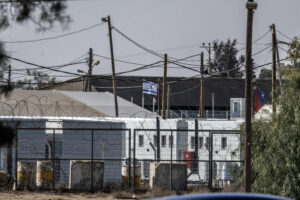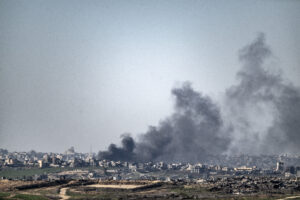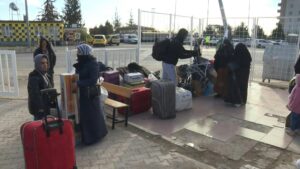Relief in Senegal and beyond after Sall averts election crisis
Dakar, Senegal (AFP):
Relief swept Senegal and its foreign allies on Tuesday after President Macky Sall said he would not seek a contested third term in office, a move that defused fears of further deadly protests.
A flood of reaction at home and abroad welcomed the announcement from Sall that after “long consideration” he had decided against running in next February’s ballot.
In a nationwide address late Monday, Sall said he had sought to prioritise Senegal’s progress, “in particular at a time of social-economic difficulties and uncertainties”.
“Senegal is more than me, and is full of capable leaders for the country’s development,” he said.
Opposition figures suggested Sall had been forced to change his plans because of public indignation.
“If President Macky agreed to throw in the towel… it’s because there were Senegalese who stood up to him,” said former prime minister Aminata Toure.
Dethie Fallan, an opposition leader, urged people “to remain vigilant and mobilised” and even spoke of a “trick” by Sall to weaken opponents.
“We have taken note of this decision which is nothing other than a response that was expected of him… that is to say to respect the constitution,” Fall told a press conference.
“What is expected of him is to organise a transparent and inclusive election.”
Constitutional wrangle
But many residents said they believed the country had dodged a bullet.
“His speech changes many things. Senegal has become stable and governable. I am 200 percent happy,” said Issa Camara, who works in the maritime sector.
Many had believed Sall would seek a third term.
Sall’s fiercest critic, Ousmane Sonko, had urged the public on Sunday to rise “en masse” against a man he had painted as a would-be dictator.
But the opposition leader is currently ineligible to run for office and blocked in his Dakar home by security forces after being handed a two-year jail term on sexual abuse charges, which he denies.
The case sparked sporadic unrest over two years, culminating in deadly clashes on his conviction last month which left 16 dead, according to the authorities. Amnesty International put the toll at 24.
Entrenched strongmen
Sall, 61, was first elected in 2012 for a seven-year term and again in 2019 for a five-year term, following a constitutional revision of the tenure.
The constitution stipulates that a president cannot serve more than two terms — but Sall’s supporters had argued the counter had been reset to zero with the 2019 revision.
He had campaigned against a third term by his predecessor, Abdoulaye Wade, in power from 2000 to 2012, and had said he would not seek re-election, bucking Africa’s trend of entrenched strongmen leaders.
Yet in recent months Sall had remained coy about a third term, stoking ambiguity exploited by the opposition.
Tributes abroad
Praise for Sall poured in from outside Senegal, a country seen as a beacon of democracy and stability in a notoriously turbulent region.
The US State Department hailed the decision not to run again.
“President Sall’s clear statement sets an example for the region, in contrast to those who seek to erode respect for democratic principles, including term limits,” it said.
“Senegal is again delivering proof of the solidity of its long democratic tradition,” former colonial power France said via its foreign ministry.
UN Secretary-General Antonio Guterres praised on Twitter Sall’s “statesmanship”, saying his “decision represents a very important example for his country and the world”.










